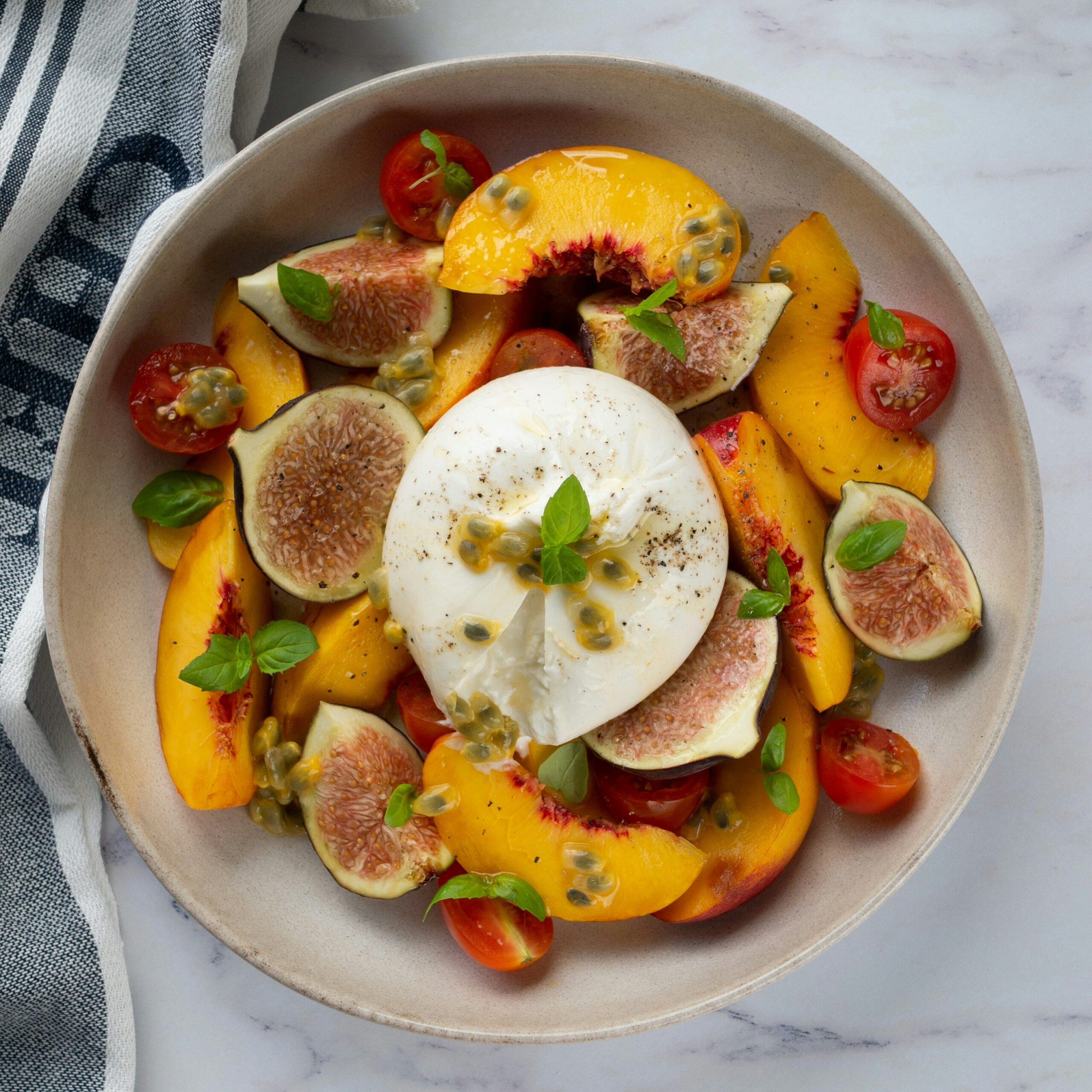O Encantador Mundo da Burrata: Uma Delícia Cremosa para os Amantes da Gastronomia
A burrata é um dos queijos mais sofisticados e apaixonantes da culinária italiana, conquistando paladares ao redor do mundo. Com sua casca delicada de mozzarella e um interior irresistivelmente cremoso, essa iguaria não apenas enriquece pratos gourmet, mas também se destaca por sua versatilidade. Seja combinada com ingredientes frescos ou harmonizada com vinhos elegantes, a burrata eleva qualquer experiência gastronômica a outro nível.
Neste artigo, vamos explorar as origens, produção e usos da burrata, além de revelar combinações surpreendentes e receitas deliciosas para desfrutar dessa maravilha da gastronomia.
Origens da Burrata: Um Tesouro do Sul da Itália
A burrata tem suas raízes na região da Apúlia (Puglia), na Itália, um local famoso por suas tradições na produção de queijos artesanais. Seu nome, derivado da palavra italiana “burro” (manteiga), já revela sua textura rica e amanteigada.
Criada por volta de 1920, na fazenda Bianchini, na cidade de Andria, a burrata nasceu como uma solução engenhosa para evitar o desperdício de sobras de mozzarella. Os produtores começaram a rechear essas sobras com creme fresco, criando um queijo novo, de sabor inigualável e textura extremamente cremosa. Desde então, a burrata tornou-se uma das joias da gastronomia italiana, adorada por chefs e apreciadores de queijos em todo o mundo.
Como a Burrata é Feita? O Processo Artesanal
Produzir burrata é uma verdadeira arte, que exige habilidade e conhecimento técnico. Seu processo de fabricação começa com leite fresco de vaca, coalho e creme.
- Aquecimento e Coagulação: O leite é aquecido e coalhado com o uso de coalho natural, formando uma massa de queijo.
- Moldagem da Casca: A massa é aquecida em água quente e trabalhada até adquirir uma consistência elástica, formando a casca externa de mozzarella.
- Recheio Cremoso: O interior é recheado com pedaços de mozzarella fresca (ritagli) misturados a creme de leite fresco.
- Vedação: A burrata é cuidadosamente selada, formando uma espécie de “trouxinha” que mantém seu recheio cremoso intacto.
- Resfriamento e Armazenamento: O queijo é armazenado em soro para preservar sua umidade e frescor.
O resultado? Uma explosão de sabor e textura que conquista qualquer um que prova!
Perfil Nutricional: O Equilíbrio Entre Sabor e Saúde
A burrata é um queijo rico em nutrientes essenciais. Uma porção de 100 gramas contém aproximadamente:
- Calorias: 280-300 kcal
- Proteínas: 18g
- Gorduras: 25g (predominantemente saturadas)
- Carboidratos: 2g
- Cálcio: Cerca de 15% do valor diário recomendado
Embora seja um queijo mais calórico, ele fornece proteínas de alta qualidade, cálcio e vitaminas importantes, como vitamina A e do complexo B, essenciais para a saúde óssea e funções metabólicas.
Como Degustar Burrata? As Melhores Combinações e Receitas
A burrata é um ingrediente versátil que pode ser usada em uma variedade de pratos. Seu sabor suave e textura cremosa combinam perfeitamente com diferentes elementos, criando experiências gastronômicas inesquecíveis.
🍅 1. Saladas Frescas
A combinação clássica é a burrata com tomates frescos, manjericão, azeite extravirgem e vinagre balsâmico – uma versão elevada da tradicional Caprese. Também funciona incrivelmente bem com rúcula, figos e presunto de parma.
🍝 2. Massas Cremosas
Adicione burrata sobre pasta quente, como um espaguete ao pesto ou um rigatoni ao pomodoro. O calor da massa derrete delicadamente o queijo, criando um molho cremoso e irresistível.
🥖 3. Com Pães Artesanais
Sirva burrata com uma focaccia crocante, pão de fermentação natural ou ciabatta, finalizando com azeite trufado e flor de sal.
🥩 4. Harmonização com Carnes
A burrata traz um toque aveludado para carnes grelhadas, como bife ancho, filé mignon e cordeiro. Sirva com molho de vinho reduzido para uma explosão de sabores.
🍑 5. Combinações Inusitadas com Frutas
Experimente burrata com pêssegos grelhados, frutas vermelhas ou figos caramelizados. O contraste entre a doçura das frutas e a cremosidade do queijo cria um prato sofisticado e surpreendente.
Benefícios para a Saúde
Apesar de ser um queijo mais indulgente, a burrata traz diversos benefícios:
✅ Rica em cálcio e proteínas, essenciais para ossos fortes e recuperação muscular.
✅ Fonte de gorduras boas, fundamentais para a produção de hormônios e saúde celular.
✅ Vitaminas do complexo B e vitamina A, que auxiliam na imunidade e na saúde da pele.
Dica: Para um consumo equilibrado, combine-a com alimentos leves e frescos, como vegetais e ervas aromáticas.
Como Armazenar a Burrata Corretamente?
Para manter sua frescura e sabor, siga estas dicas:
- Consuma em até 24 horas após abrir, pois a cremosidade interna pode se deteriorar rapidamente.
- Mantenha na geladeira, imersa no seu líquido original.
- Evite congelar, pois isso pode alterar a textura delicada do queijo.
Conclusão: A Experiência Gastronômica da Burrata
A burrata não é apenas um queijo – é uma experiência sensorial que transforma qualquer refeição em um momento especial. Seu sabor delicado, textura única e versatilidade na culinária a tornam um ingrediente indispensável para quem ama gastronomia sofisticada.
Seja em saladas frescas, massas cremosas, pães crocantes ou até mesmo com frutas, a burrata sempre entrega uma combinação irresistível de simplicidade e sofisticação.
Agora que você conhece tudo sobre essa joia italiana, que tal incluí-la no seu próximo prato? Experimente diferentes harmonizações e surpreenda-se com o sabor inconfundível da burrata!


